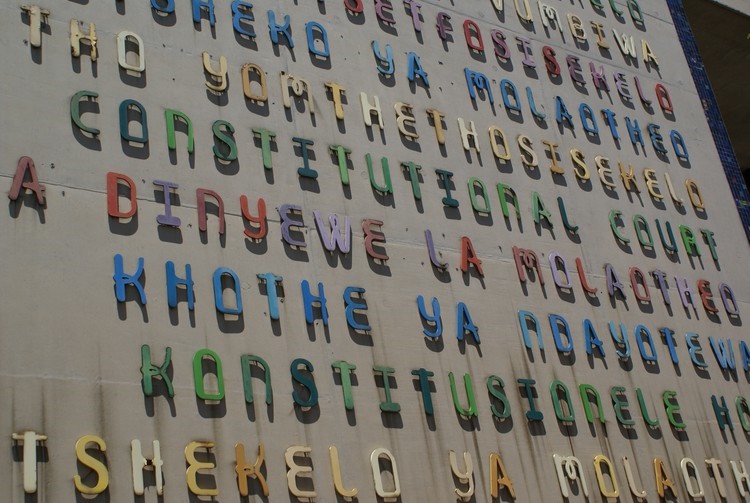
The recent revival of a theory that asserts that only the leader can claim to know when the State is threatened and needs an exceptional decision, poses a threat to countries world wide, writes Serjeant at the Bar.
Constitutional democracy is under greater pressure than at any time since its rise to a dominant model of democracy after the Second World War.
From the USA under Donald Trump to Hungary under Viktor Orban and Recep Erdogan's Turkey, the idea that a democratically elected leader should be constrained by a constitution policed by the power of judicial review is no longer accepted. It is not surprising therefore that the astute political commentator for the Financial Times, Gideon Rachman recently published a column about the continued popularity of Carl Schmidt.
Schmidt was the leading legal theorist of the Nazi regime which he survived, dying in 1985 at the age of 96. Called the 20th century's most brilliant opponent of liberalism, he denounced the cosmopolitan idea of a diverse but accepting humanity as well as the doctrine of separation of powers.
The sovereign was he (and for Schmidt it was a he) who decides on the exception; that it is the sovereign and only the sovereign who is able to determine when the State is confronted with the kind of exceptional threat to its survival and hence its future and consequently what exceptional measures must be taken to deal with these threats. This idea was used initially by Schmidt to justify Hitler's suspension of democracy and implementation of emergency powers after the Reichstag fire in 1933.
However, it is hardly surprising that the same theory has been dusted and used by Vladimir Putin, the Chinese government and most recently suggested as necessary by Trump.
Schmidt's other big idea was that liberalism works with the mistaken assumption that everyone must be treated equally despite the obvious fact that all states are based upon a fundamental distinction between "them" and "us"; that is between a friend and an enemy.
To ensure its own survival a nation needs constant reminder of the existence of its enemies. Trump, Putin, Erdogan, Orban and even the Brexiteers all work with this distinction it is essential to the constituency on which they rely for political support.
It is a disturbing world when the legal theorist whose writings provided the legal justification for Nazi rule and was unsurprisingly a rabid anti-semite is back in vogue, so much so that in 2017 an OUP Handbook of Carl Schmidt was published such was the renewed interest in his work. Rachman is correct to draw our attention to how these theories, discredited long ago, are back in the public discourse thanks to the rise of authoritarian politics over the past two decades in particular.
In reading Rachman's piece and upon reflecting on the work of Schmidt, embraced as it is on the contemporary far right and left, the question arises as to the possible implication for South Africa in 2019.
To be sure South Africa has replaced a president who was instinctively sympathetic to a weaker form of constitutional democracy with a constitutionalist; after all, Cyril Ramaphosa was the key figure in ensuring the conversion of constitutional ideas into the 1996 Constitution. South Africa is fortunate to have as its president one of the few world leaders who both understands comprehensively and is deeply committed to constitutional democracy.
However that is not gainsay the existence of many, whether within the ruling party or in the opposition parties and organisations, whose approach to politics in this country finds resonance in the work of Carl Schmidt. For example, there has been a widely published rumour which has not been contradicted that Jacob Zuma considered declaring a state of emergency when he was faced with removal during the early part of 2018. If correct, this does point to the attraction of the theory of the leader claiming that only he understands when the State is threatened with the exceptional moment.
The Constitution itself has been subjected to numerous attacks on the basis that it does not represent the will of the people but was instead a product of a sordid compromise struck between Nelson Mandela and white capital. At a lesser level the Constitution has been blamed for the snail's pace progress of land reform; hence the need for constitutional amendments even as the overwhelming number of legal experts argued that the fault was not with Section 25 of the Constitution, being the property clause, but with the manner in which government policy was developed and implemented.
Over the past few years, the aim of constructing a non-racial, non-sexist society has been undermined by all manner of populist rhetoric. To be clear there is a vast difference between the imperative of ensuring the eradication of privilege and power based on race as it emerged from 300 and more years of colonial and racist rule and unbridled attacks on "Indian cabals" and the rejection of values that belong to all humankind in the name of "us" vs "them".
We dodged the Schmidt bullet about a year ago but in the longer run constitutional democracy will need to show it can work to the benefit of 55 million South Africans, lest we become another country in which Schmidt's theories find fruitful ground.
- Serjeant at the Bar is a senior legal practitioner with a special interest in constitutional law.
Disclaimer: News24 encourages freedom of speech and the expression of diverse views. The views of columnists published on News24 are therefore their own and do not necessarily represent the views of News24.




 Publications
Publications
 Partners
Partners























